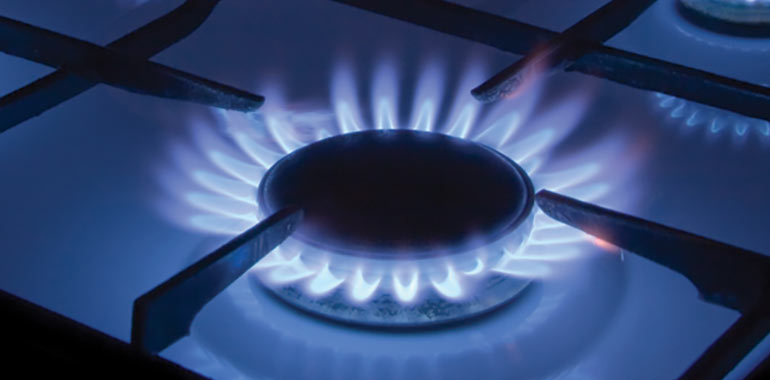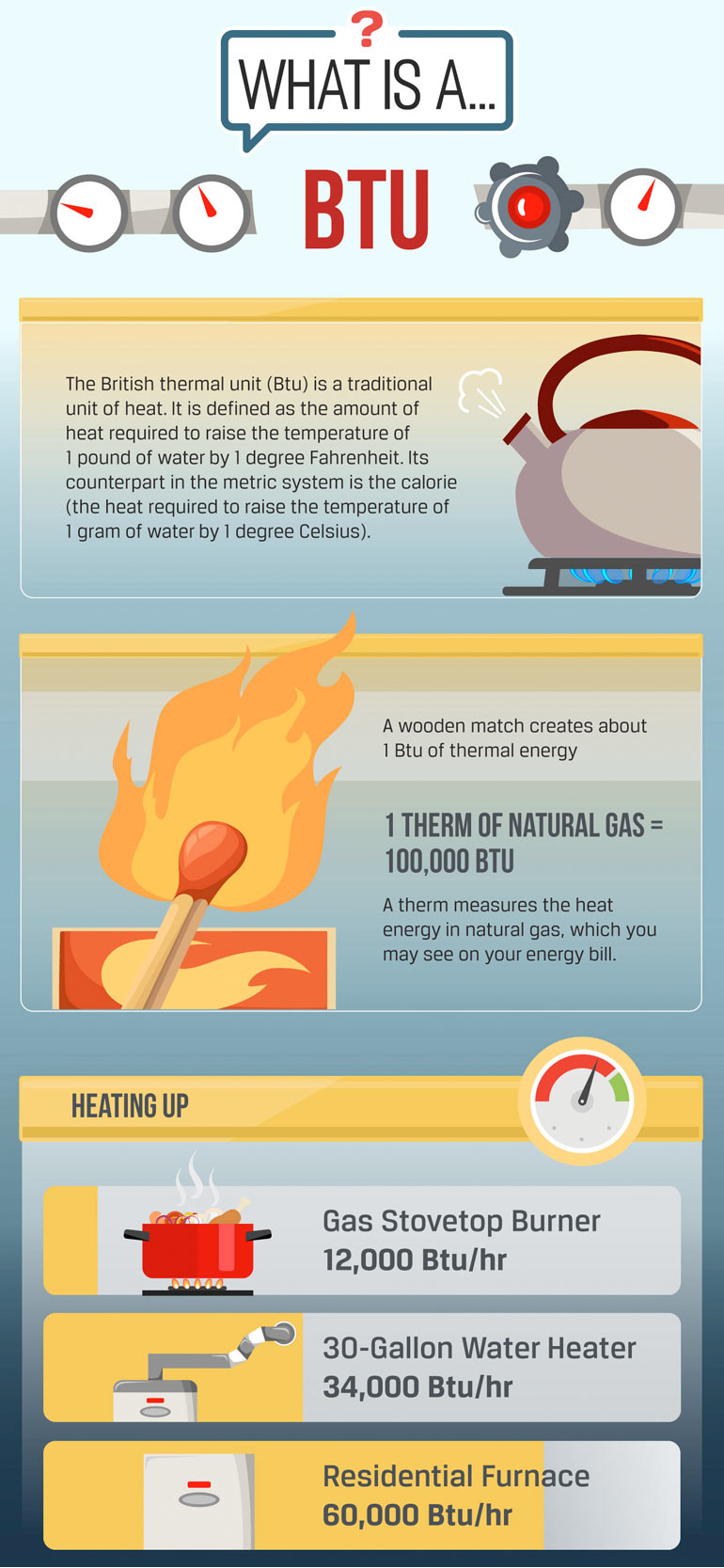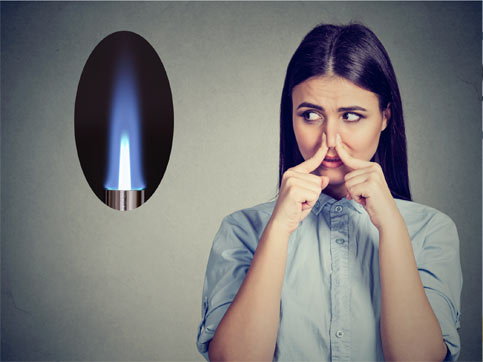
Natural Gas Facts
Why is a natural gas flame colored blue?
The combustion that creates a visible flame is an amazing chemical process. Natural gas consists almost entirely of methane. Combustion is a process that mixes methane with oxygen in the air. There is a very specific ratio of air-to-natural gas that is required for perfect combustion. Theoretically, it takes 1,200 cubic feet of air per cubic foot of natural gas to produce 100,000 British thermal units (Btu) of heat. (By the way, this process produces about a gallon of water as well.)
This natural gas combustion process is summarized as follows:
Methane + Oxygen → Carbon dioxide + Water + Carbon particles + Heat
Of course, no combustion process is perfect. If you don’t supply enough air, the combustion flame temperature will be lower than normal and appear yellow in color, more solid carbon particles from incomplete combustion will be produced, and you may even see soot produced in the form of black smoke. If you supply a nearly perfect amount of air, the flame temperature will be much hotter and the flame will appear blue.
What is a BTU?
A British thermal unit (Btu) is a measure of energy, but what does it actually measure?

Why does natural gas stink?

Natural gas is colorless and odorless. For safety and easy detection, a chemical called mercaptan is added during processing to give the gas a distinctive odor. Most people say the sulfurous smell reminds them of rotten eggs, cooked cabbage or garlic. Mercaptan is considered non-toxic in the extremely low concentrations found in natural gas delivered to buildings.
Follow these steps to stay safe:
- Evacuate the area immediately.
- Call Pensacola Energy Emergency Services at 850-474-5300 from a safe location.
- Don’t smoke or light a match, candle or other flame.
- Don’t turn electrical appliances or lights on or off, operate motorized equipment or vehicles, or use a phone, flashlight or any device that could cause a spark.
- Leave doors and windows open.
What can prevent you from smelling mercaptan?
By design mercaptan has a very distinctive odor—it’s supposed to get your attention. In some rare cases, however, you may not catch the scent. Be aware if you experience any of these conditions:
- Odor fatigue, the temporary inability to distinguish an odor after prolonged exposure
- You have a cold, sinus condition or allergies
- You use tobacco, alcohol, drugs and certain medications
- The odor is masked or hidden by other odors present
- Pipe and soil conditions have caused “odor fade”
Other signs of a gas leak
If you don’t smell an odor, you may see or hear something wrong, including:
- A damaged connection to a natural gas appliance
- Dirt, water or debris being blown into the air
- A dry patch of grass in your yard (in an otherwise moist area)
- Exposed pipeline after an earthquake, fire, flood or other disaster
- Dead or dying houseplants
- Hissing, whistling or roaring near a natural gas line or appliance
In addition to the danger of explosion, natural gas leaks in buildings can rob the air of oxygen. Physical symptoms include dizziness, headaches, flu-like symptoms, chest pains, nausea, ringing in the ears and mood changes. If you notice these problems, evacuate, go to a safe area and call Pensacola Energy Emergency Services at 850-474-5300.
Pensacola Energy emergency service personnel are on duty 24 hours a day, seven days a week, including holidays.
If your gas service has been disconnected because of safety concerns, you should call 850-474-5300 to schedule Pensacola Energy to turn on your natural gas and relight your appliances once the problem has been corrected.
